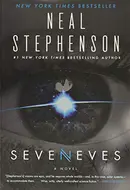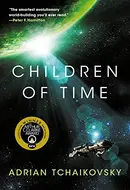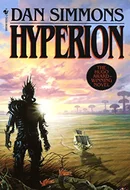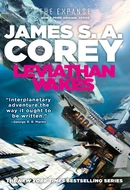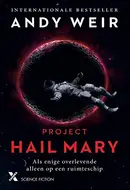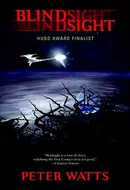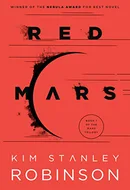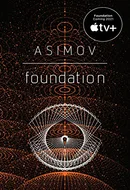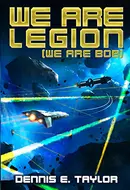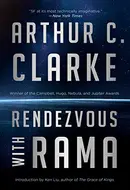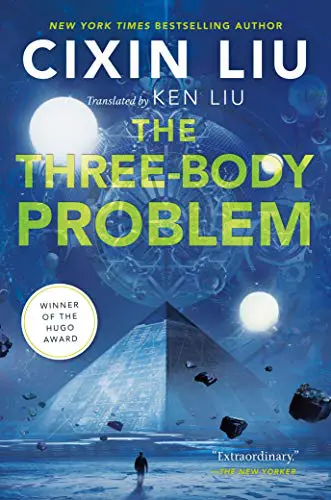
The Three-Body Problem by Liu Cixin is a hard science fiction novel that delves into the discovery of another race in our galaxy, challenging the basic principles of modern physics. Set in China during the Cultural Revolution, the book follows Chinese astrophysicist Ye as she tries to prevent a global catastrophe with possible extraterrestrial origins. The writing style incorporates elements of Chinese culture and history, offering a fresh perspective on sci-fi and blending imaginative scientific concepts with societal reflections.
Genres:
Tropes/Plot Devices:
Topics:
Notes:
Sensitive Topics/Content Warnings
Content warnings for The Three Body Problem include depictions of the Cultural Revolution, ideological extremism, and some themes of suicide.
From The Publisher:
Soon to be a Netflix Original Series!
"War of the Worlds for the 21st century." - Wall Street Journal
The Three-Body Problem is the first chance for English-speaking readers to experience the Hugo Award-winning phenomenon from China's most beloved science fiction author, Liu Cixin.
Set against the backdrop of China's Cultural Revolution, a secret military project sends signals into space to establish contact with aliens. An alien civilization on the brink of destruction captures the signal and plans to invade Earth. Meanwhile, on Earth, different camps start forming, planning to either welcome the superior beings and help them take over a world seen as corrupt, or to fight against the invasion. The result is a science fiction masterpiece of enormous scope and vision.
The Three-Body Problem Series
The Three-Body Problem
The Dark Forest
Death's End
Other Books
Ball Lightning
Supernova Era
To Hold Up The Sky (forthcoming)
Ratings (316)
Incredible (56) | |
Loved It (100) | |
Liked It (74) | |
It Was OK (51) | |
Did Not Like (29) | |
Hated It (6) |
Reader Stats (623):
Read It (313) | |
Currently Reading (6) | |
Want To Read (220) | |
Did Not Finish (30) | |
Not Interested (54) |
10 comment(s)
While I admire the massive undertaking that writing this book must’ve been, it wasn’t for me. I never felt like I moved beyond reading a science textbook. The science in this fiction was convincing, but I can’t say I felt the same for the plot.
I decided to read to pick up The Three-Body Problem because I many book-tokers I follow were recommending it and the Netflix show came out recently. I knew absolutely nothing going in. I didn’t even know it was sci-fi until I got about 10% in.
It describes a few different time periods starting from the Chinese Cultural Revolution to the modern age (although with more advanced technology). China had this secret military project in the 1960s designed to make contact with aliens. The story follows a modern day physicist and a few other characters around them trying to make sense of some bizarre incidents happening in the science community. This book is very nerdy and not for the faint of heart, at least on audiobook. There is lots of physics and math and science being thrown at you. At some points it almost feels like a college textbook. However, I never found this boring surprisingly. The way the narrator read it, it almost seemed like parody. Most of the time I thought it was funny and the rest of the time it wasn't long enough or uninteresting enough to drag down the story.
This book can be pretty campy at moments. Towards the middle of the book is a large section focused on playing a VR game that one of the characters believes is related to the aliens. The game is actually called The Three-Body Problem and in order to calculate something that could save this video games planet from assured destruction is solving the Three Body Problem. I could maybe try to explain what it is but I would definitely get some parts wrong so I’ll just say how they end up attempting to solve the math problem.
They don’t have access to real computers in this VR game so instead they train people to basically become a computer. They teach the basics of and, or, and/or, etc. gates and design a computer with a CPU and memory and a hard drive using real people raising different colored flags to try and compute this complex problem. This idea is so unrealistic and campy and silly but so unbelievably creative. This was definitely my favorite part of the book but there was lots of interesting stuff going on. It put me in the mood for sci-fi.
This story is enjoyable because of its creativity and ability to think outside of the box. If you like sci-fi you will absolutely enjoy this book.
My main critique of this book is that it's a series of explanations for semi-plausible scientific principles loosely arranged into a sequence of events. An argument can be made that this does, therefore, constitute a plot, if it were not also entirely lacking in pacing, character development, and purpose.
There's other issues though. Lots of them! The characters are unrelatable and made unlikely (unbelievable) decisions as they ambled through this universe. Everyone speaks to one another in the exact same starchy voice—using a formalism typically reserved for emails to college professors—whether they're being interrogated or talking to their children. Elementary imagery is used to supplement the tone that otherwise appears to be out of reach for the author, the narrator, or both (
"in that moment her eyes truly were the window to her soul"). Every woman in this story has a slender figure. All of them. There is apparently no other way to describe female characters in this world. The main protagonist, or at least the perspective from which most of the story is told, has exactly zero backstory or reason to be participating in most of the situations he is placed within. I seem to recall him having a wife and child but Liu seems to have forgotten of their existence after their single scene. The protagonist's career is completely unrelated to the story for the majority of the plot until what some might call the climax of the story. Then his scientific research becomes a
dues ex machina to finish the action. After which it is never mentioned again. Never mind that the situation could have been written completely differently: a which would could have given our hero a career / background that made sense for the rest of the story.
All of this is to say that I was extremely disappointed in this story. I am not totally convinced I read the correct book—this deserved to win the Hugo? I am baffled by the praise this received. It's Tom Clancy does sci-fi. I read the plot summary of book no. two & three of the trilogy on Wikipedia. I was just as satisfied and probably less cranky. If you're curious about the plot, I would suggest doing the same. It could save you from writing a review like this.
If you're interested in actual hard science fiction I suggest Asimov, PKD and especially Ted Chiang.
The Three-Body Problem is a mysterious, philosophical science fiction novel that approaches the issue of first contact with an alien civilization in a totally fascinating way. The book opens during China's Cultural Revolution; an scientist is interrogated on a public stage and eventually beaten to death for not complying with his interrogators. In the audience is his daughter, another scientist, and her witness of his senseless murder is essentially the spark that leads to first contact. Ye Wenjie, the daughter, becomes convinced that humanity will never evolve beyond a certain point without outside help; her experiences in the brutal Revolution both convince her of humanity's inability to save itself and give her the opportunity to contact another civilization. Ye and her compatriots invent a game called the Three Body Problem, an immersive virtual reality experience in which scientists (the only ones who play the game) must learn to predict how three bodies will orbit around one planet.
There's an interesting parallel between Three-Body, where players log in as historical figures in science and philosophy, and the Cultural Revolution that sparked the action in the book. In the Cultural Revolution, those who rose to power sought to crush science that relied on "Western, capitalist" thinking; they destroyed people and places thoughtlessly, purposely ignoring science that didn't suit their worldview. In Three-Body, brilliant scientists immerse themselves in the high-level physics and engineering required to solve the game, some to the point of ignoring what that might mean in the real world. Between them is Sha Qiang, a rude policeman who might not have lofty academic credentials, but whose groundedness makes him the only one who can find solutions to certain problems. His outside the box thinking surpasses science in some ways, doing what both science and the Cultural Revolution could not. He offers hope even after first contact makes humanity's destruction seem inevitable.
I can't wait for the rest of the series. Just as the game is described, the book is plain and simple on the surface but contains more and more information the deeper you look.
Lo bueno:
- La cantidad de ciencia, especialmente fisica. Lo bien que esta encaja en la historia y lo bien explicada que esta.
- Muchas ideas originales
- El final
Lo malo:
- El lenguaje es bastante bleh
- Las conversaciones a veces son artificiales. Lo que hace ver a los personajes artificiales
- Todo esta narrado en tercera persona aunque a veces sean explicaciones de una persona sobre su propio pasado. Algo asi:
- wenxia : "dejame contarte sobre lo que paso esos años:
- "Aquellos años Wenxia era una pequeña...."
Fijate como ha cambiado la narracion otra vez a tercera persona.
I actually found reading the Wikipedia synopsis much more interesting and compelling than the book itself.
This book had such an interesting concept, but the execution was just not there. The writing, the characters, all of it fell flat. I don't know if it was a translation issue, or if the writing is this jilted and dry in the original Chinese, but I'm really at a loss for why this book is so popular.
Well at the any rate, I'm sure the Netlfix series will be bomb, so there's that to look forward to.
Got to know so much about Chinese history and the cultural revolution that took place in the 60s. Never knew something like this happened merely 50-60 years ago.
Looking forward to the next 2 parts.
Really good science fiction book. Combines the cultural aspects of China with adavnced technology. Reads more like a mystery thriller than normal sf book. Looking forward to read next two entries of the series.
Needs more realistic characters
The book revolves around the idea of solving the three-body problem in physics, which involves predicting the motion of three celestial bodies in space.
The story is complex, and it combines elements of science, politics, philosophy, and cultural history in a way that is both fascinating and thought-provoking.
The characters in the book are well-developed, and their struggles and experiences are compelling. The pacing of the story is slow and deliberate, which allows for a thorough exploration of the themes and ideas presented.
Overall, "The Three-Body Problem" is an outstanding work of science fiction that will appeal to anyone interested in physics, astronomy, or the possibility of extraterrestrial life. It is a must-read for fans of the genre and an excellent introduction to Chinese science fiction for those who have yet to explore it.
About the Author:
CIXIN LIU is the most prolific and popular science fiction writer in the People's Republic of China. Liu is avwinner of the Hugo Award, an eight-time winner of the Galaxy Award (the Chinese Hugo), and a winner of the Chinese Nebula Award.
KEN LIU (translator) is a writer, lawyer, and computer programmer. His short story "The Paper Menagerie" was the first work of fiction ever to sweep the Nebula, Hugo, and World Fantasy Awards. He has written two novels (The Grace of Kings and The Wall of Storms) and edited and translated the Chinese science fiction anthology Invisible Planets.
When you click the Amazon link and make a purchase, we may receive a small commision, at no cost to you.
